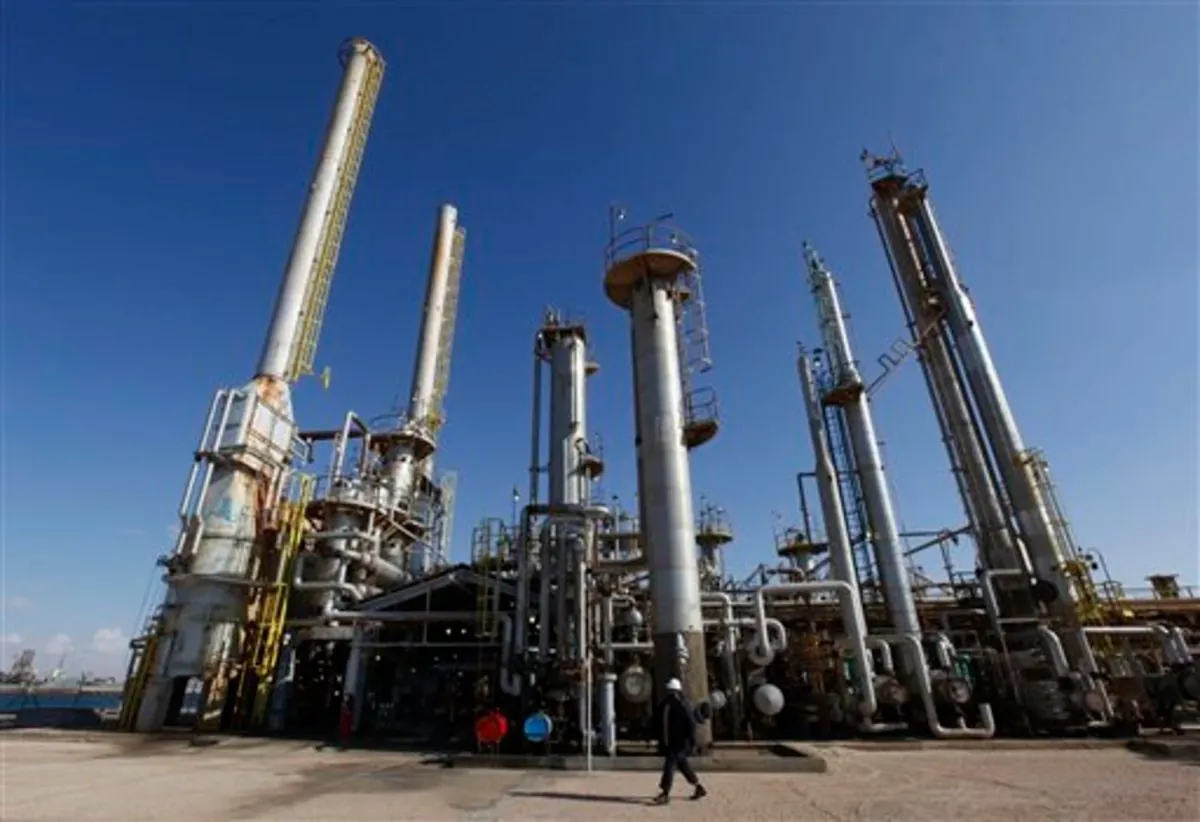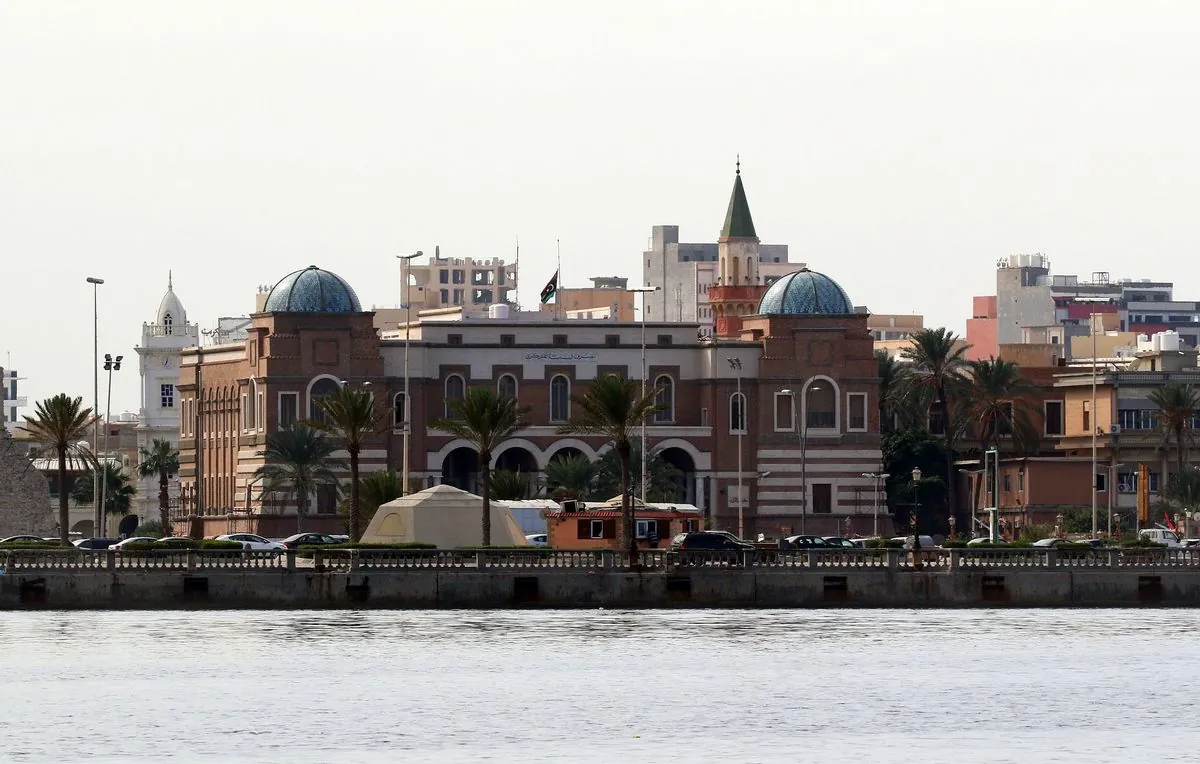Libya's Oil Crisis: Production Halved Amid Political Standoff
Libya's oil production plummets as political factions clash over central bank control. Over 700,000 barrels per day offline, threatening economic stability and ending a period of relative peace.

Libya's oil industry, the backbone of its economy, faces a severe crisis as political tensions escalate. More than half of the country's oil production, approximately 700,000 barrels per day (bpd), has been halted due to a dispute over control of the Central Bank of Libya. This disruption threatens to end a four-year period of relative stability in the North African nation.
Libya, home to Africa's largest proven oil reserves, has seen its daily output plummet from 1.18 million bpd in July 2024 to just 591,024 barrels on August 28, 2024. The National Oil Corporation (NOC), established in 1970 and responsible for managing the country's oil resources, reported that total losses in the three days following the oilfield closures amounted to 1,504,733 barrels, valued at about $120 million.
The crisis stems from a political standoff over the leadership of the Central Bank of Libya. On August 18, 2024, the internationally recognized Presidency Council, led by Mohammed al-Menfi, attempted to dismiss veteran central bank governor Sadiq al-Kabir. This move was rejected by the eastern-based House of Representatives and the Libyan National Army, commanded by Khalifa Haftar.

In response to this political maneuvering, eastern factions have vowed to keep oil production shut off until al-Kabir is reinstated. This tactic of using oil blockades as political leverage is not new to Libya, having been employed frequently since the 2011 NATO-backed ouster of longtime leader Muammar Gaddafi.
The impact of this shutdown is far-reaching. Key oil ports in Libya's hydrocarbon-rich Oil Crescent - Es Sidra, Brega, Zueitina, and Ras Lanuf - have halted export operations. Production at major oilfields, including those controlled by Waha Oil Company, Sharara, Sarir, Abu Attifel, Amal, and Nafoora, has been either reduced or completely stopped.
Libya's oil industry, which accounts for about 95% of the country's export earnings, employs approximately 10% of its 7 million population. The country's oil is particularly valuable due to its high quality and low sulfur content, making this disruption even more significant for global markets.
Consulting firm Rapidan Energy Group estimates that production losses could reach between 900,000 and 1 million bpd and potentially last for several weeks. This situation is reminiscent of the 2020 blockade when Haftar stopped nearly all production for eight months, which was only resolved as part of a wider agreement following the collapse of his assault on Tripoli.
"The Central Bank of Libya remains committed to maintaining economic stability and ensuring the fair distribution of oil revenues for the benefit of all Libyans."
The current crisis underscores the fragility of Libya's political landscape, which has been marked by an east-west split since 2014. Despite having the highest Human Development Index in Africa, the country's reliance on oil revenues has made it vulnerable to such political disputes.
As the situation unfolds, the international community watches closely, aware that Libya's oil production plays a crucial role in global energy markets. The resolution of this crisis will be pivotal not only for Libya's economic stability but also for its path towards lasting peace and unified governance.


































